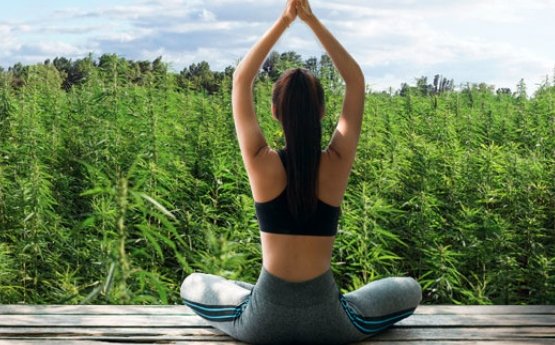A new study from the University of Colorado Boulder suggests that cannabis can make exercise more enjoyable, motivating, and rewarding for some people. The study, published in the journal Sports Medicine, is one of the first to examine how legal, commercially available cannabis affects the experience of exercise, especially for runners.
How cannabis influences exercise
The researchers surveyed 605 cannabis users who live in states where recreational cannabis is legal. They asked them about their cannabis use habits, their exercise behaviors, and their perceptions of how cannabis affects their exercise. They found that:
- 82% of the respondents reported using cannabis before and/or after exercise
- 70% of those who used cannabis around exercise said it increased their enjoyment of exercise
- 78% said it enhanced their recovery from exercise
- 52% said it increased their motivation to exercise
The researchers also conducted a smaller experiment with 24 participants who used cannabis and exercise regularly. They asked them to run on a treadmill for 10 minutes under four conditions: sober, after consuming THC (the main psychoactive component of cannabis), after consuming CBD (a non-psychoactive component of cannabis), and after consuming both THC and CBD. They measured their heart rate, blood pressure, oxygen consumption, and mood before and after the exercise.

They found that:
- Cannabis did not affect the participants’ performance or physiological responses to exercise
- Cannabis did not impair the participants’ ability to perceive their exertion level or their enjoyment of exercise
- Cannabis did not cause any adverse effects such as dizziness, nausea, or anxiety
The researchers concluded that cannabis does not have a negative impact on exercise performance or safety, and may have a positive impact on exercise enjoyment, recovery, and motivation for some people.
Why cannabis and exercise may go well together
The researchers speculated that cannabis may enhance the experience of exercise by interacting with the endocannabinoid system, a biological system that regulates various functions such as mood, pain, appetite, and memory. The endocannabinoid system is also involved in the production of endorphins, the natural chemicals that create the feeling of euphoria or “runner’s high” after exercise.
Cannabis contains cannabinoids, such as THC and CBD, that can mimic or modulate the effects of endocannabinoids in the body. By doing so, cannabis may boost the levels of endorphins and other neurotransmitters that are associated with positive emotions, such as dopamine and serotonin. This may explain why some people report feeling more relaxed, happy, and satisfied after using cannabis and exercise.
Cannabis may also help with exercise recovery by reducing inflammation, pain, and muscle soreness. CBD, in particular, has anti-inflammatory and analgesic properties that may benefit athletes and exercisers. Cannabis may also improve sleep quality and duration, which are essential for optimal recovery and performance.
What are the potential risks and benefits of cannabis and exercise
The study authors acknowledged that their findings are limited by the self-reported nature of the data, the small sample size of the experiment, and the lack of a placebo or control group. They also noted that cannabis use may have different effects on different people, depending on their individual characteristics, preferences, and tolerance levels.
They advised that people who are interested in using cannabis and exercise should consult with their health care providers, follow the legal regulations, and use cannabis responsibly and moderately. They also suggested that people should avoid using cannabis before engaging in high-risk or competitive activities, such as driving, operating machinery, or participating in sports that require coordination, concentration, or quick reactions.
The study authors also highlighted the potential benefits of cannabis and exercise for public health and well-being. They argued that cannabis and exercise may be a synergistic combination that can encourage more people to be physically active and enjoy the health benefits of exercise. They also suggested that cannabis and exercise may be a viable alternative or adjunct to conventional treatments for various conditions, such as chronic pain, depression, anxiety, and insomnia.
Future directions for cannabis and exercise research
The study authors called for more research on cannabis and exercise, especially on the long-term effects, the optimal doses and modes of administration, the interactions with other substances, and the individual differences among users. They also recommended that future studies should use objective measures of exercise performance and physiological responses, as well as randomized controlled trials with placebo or control groups.
They concluded that cannabis and exercise is a novel and promising area of research that has the potential to improve the quality of life of many people.



